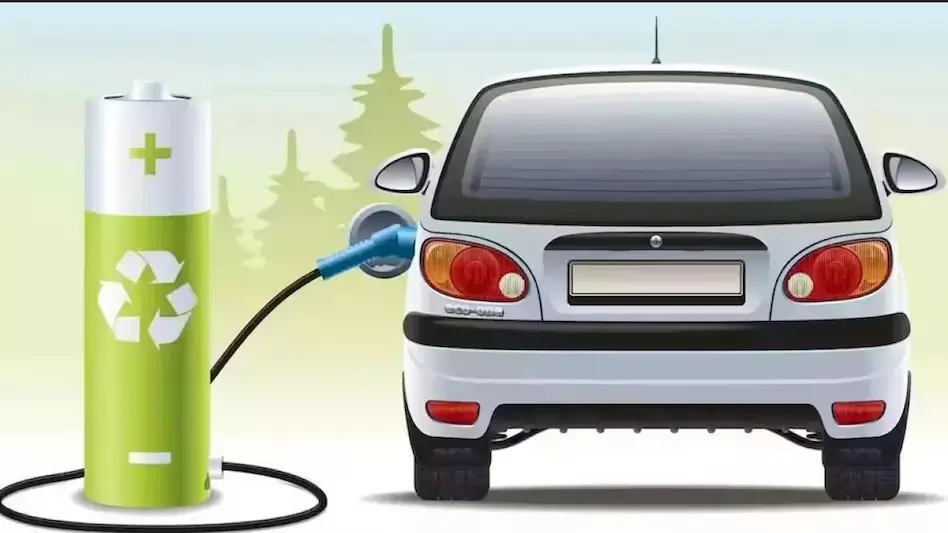
The maintenance needs of electric vehicle (EV) batteries are notably lower compared to those of internal combustion engines. Despite this, ensuring optimal battery life and performance necessitates periodic servicing.
Delve into this guide to explore the recommended EV Battery Maintenance Schedule, detailing how often servicing is required and the essential procedures to uphold battery health.
Table of Contents
Exploring the Fundamentals of EV Battery Maintenance Schedule
EV batteries use rechargeable lithium-ion cells to store electricity. Key components requiring occasional service include:
- Cell modules – clusters of individual battery cells
- Cooling system – liquid loops and air ducts to regulate temperatures
- Sensors – monitor voltage, current, temperature, etc.
- Wiring – interconnects cells and links to other EV systems
- Battery management system (BMS) – control module to optimize and protect the battery
While mostly “set and forget,” these systems need periodic inspection and maintenance.
Manufacturer Service Intervals
EV automakers recommend battery servicing every 1-2 years or 20,000-30,000 miles. This maintenance check should include:
- Diagnostic scan – Check for fault codes or anomalies in battery control software.
- Voltage testing – Confirm cell groups are balanced and within the normal voltage range.
- Connection inspection – Look for damaged or corroded wiring and connectors.
- Cooling system – Check coolant level and condition if liquid cooled. Verify fan operation if air cooled.
- Fastener torques – Confirm battery mounting hardware and connectors are tight.
- Cleaning – Vacuum any dust or debris that’s accumulated around the battery enclosure.
- Software updates – Install the latest firmware upgrades for the BMS.
- Recalibration – Reset the battery monitoring system if needed.
Regular EV Battery Maintenance Schedule not only prevents major issues but also comes at a minimal cost, addressing minor concerns before they escalate.
Key Factors Determining Service Frequency
Beyond the standard 1-2 year recommendation, consider increasing service frequency if:
- You drive over 20,000 miles annually
- Your commute involves frequent DC fast-charging
- You live in extremely hot or cold climates
- You regularly charge to 100% / discharge to 0%
- You accelerate hard and brake heavily
- The battery is showing reduced range capability
Frequent fast charging, extreme temperatures, and aggressive driving all increase battery wear. More servicing can help prolong battery life under these conditions.
Can I Service the Battery Myself?

Due to high-voltage risks, EV batteries demand caution. Accessing the battery, with specialized ports and tools for the management system, requires a trained technician. Avoid DIY attempts. Prioritize professional EV Battery Maintenance Schedule services.
However, you can request a detailed report on the health and status of your battery during a service visit. Look for voltage consistency across modules, temperature variations, and capacity retention metrics.
When Does an EV Battery Require Replacement?
EV batteries are rated to retain around 70-80% of their original capacity after around 150,000 miles. When capacity drops below 70% or so, the battery may require major service or replacement to restore adequate driving range.
Signs your EV is nearing time for a battery replacement:
- Driving range severely reduced from when the vehicle was new
- Longer charging times to reach full charge
- Battery capacity gauge showing fewer bars/percent
- Error codes related to battery charging or voltage
Battery replacement costs currently range from ₹3-8 lakhs for most EVs in India. The new battery typically comes with a fresh warranty of around 8 years / 1,60,000 km.
Read Also: EV Battery Replacement Costs in India – Out-of-Warranty Analysis
DIY Tips to Prolong Battery Life
While service requires a professional, you can take these DIY steps to extend your EV battery’s service lifetime:
- Avoid excessive fast charging if possible
- Charge to 80-90% capacity for daily use rather than 100%
- Park in the shade during summer to keep the battery cooler
- Minimize full discharges to zero state of charge
- Drive conservatively; avoid jackrabbit starts and hard braking
- Use climate control judiciously; minimize high heat or A/C use
- Install home charging to minimize reliance on fast charging
- Check tire pressures frequently; under-inflation reduces efficiency
Taking care of your battery will maximize its years of useful service.
Common EV Battery Repairs

Beyond routine maintenance, some conditions may require minor battery repair:
- Loose connections – Technicians can tighten loose connectors or replace damaged wiring.
- Sensor replacement – Faulty temperature probes, voltage sensors or other components can be swapped out.
- Coolant leaks -Any leaking hoses, gaskets, or valves in liquid cooling systems can be repaired.
- Software bugs – Glitches in battery management software can be debugged and updated.
- Moisture infiltration – Minor moisture incursion can be dried out with dehumidification.
- Cell isolation – Weak cells may be disconnected and isolated from the rest of the pack.
These types of relatively affordable repairs can restore optimal battery function and extend usefulness past 150k+ miles.
Signs of EV Battery Failure
While designed for longevity, lithium-ion batteries have finite service lives. Signs your battery may be failing and require major service or replacement:
- Vehicle range dropping well below the original rating
- Overheating issues, especially during fast-charging
- Battery taking a very long time to charge fully
- Swollen or warped battery enclosure
- Repeated battery-related warning lights or error codes
- Unusual odors from the battery area
- Visible damage like cracked casing or leaking fluid
If you experience persistent battery problems, have your EV service center fully diagnose the issue to determine the next steps.
Conclusion
Similar to traditional gasoline engines, EV batteries need regular maintenance to ensure optimal performance and longevity.
Adhering to the manufacturer’s suggested service intervals is crucial for the early detection of minor issues. Follow the EV Battery Maintenance Schedule to keep your electric vehicle in top condition.
With proper care and maintenance, modern lithium-ion batteries can provide over 150,000 miles of reliable service. So pay attention to those battery checkups to keep your EV running smoothly for years to come.







